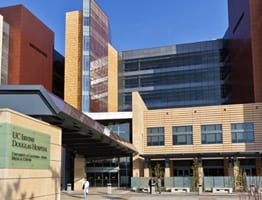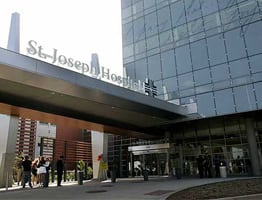
Understanding Hemorrhoid Removal Surgery
Hemorrhoids are caused by veins in the area getting swollen, irritated, and itchy. They may also get very painful for some people. Hemorrhoids that become swollen are sometimes referred to as piles. This is when the walls of blood vessels in the anus and rectum stretch too thin and the veins begin to get irritated and bulge. Hemorrhoids can be located on the inside of the anus and externally around the rectum area.
Causes of Hemorrhoids
Certain people are more prone to hemorrhoids than others. They are typically formed when there is a buildup of pressure in the rectum area. This affects the blood flow and causes the veins to swell. Individuals who strain while using the bathroom and are pregnant or obese are more prone to getting hemorrhoids.
Surgical Treatment Options
For some people, home treatments won’t do the trick. If you have recurrent hemorrhoids that are too painful and interfere with your daily activities, your doctor may suggest a couple types of surgical procedures to consider. These surgical options will help to shrink and remove the hemorrhoids.
- Hemorrhoidectomy – During this surgical procedure, your doctor will make small cuts around your anal area to cut away the hemorrhoids. Depending on your preference and the severity of your problem, you may get the procedure completed under local anesthesia or general anesthesia. It is an outpatient surgical procedure and you will get to return home the same day. Recovery will take anywhere from two to six weeks.
- PPH – A procedure for prolapse and internal hemorrhoids is also referred to as a stapled hemorrhoidectomy. During this treatment approach, your doctor will use a device that is similar to a stapler. They will use the device to cut off the hemorrhoids’ blood supply and reposition them. This will cause them to slowly shrivel up and die. This procedure is for hemorrhoids which have not prolapsed. A prolapsed hemorrhoid is one that has slipped outside of the anus. This procedure causes less pain than a hemorrhoidectomy and the recovery time is quicker.
Expectations After Hemorrhoid Surgery
The most common side effect of a hemorrhoidectomy or PPH is localized pain. The pain may be worse when making a bowel movement. To ease the pain, pain relievers such as ibuprofen, aspirin and acetaminophen should help. Taking warm baths can ease the pain as well.
Risks Associated with Hemorrhoid Surgeries
As with all types of surgeries, a hemorrhoid surgical procedure will come with its own sets of risks. The procedure is considered a common and safe one with minimal side effects to be expected. Some of the more common risks following a hemorrhoidectomy are an infection, bleeding, and a reaction to the anesthesia. Some patients notice trouble urinating after the surgery. This is temporary and is caused by swelling or muscle spasms. If the anal sphincter becomes damaged during the procedure, it could lead to fecal incontinence. This is a condition that can lead to accidental gas or bowel leaks.









